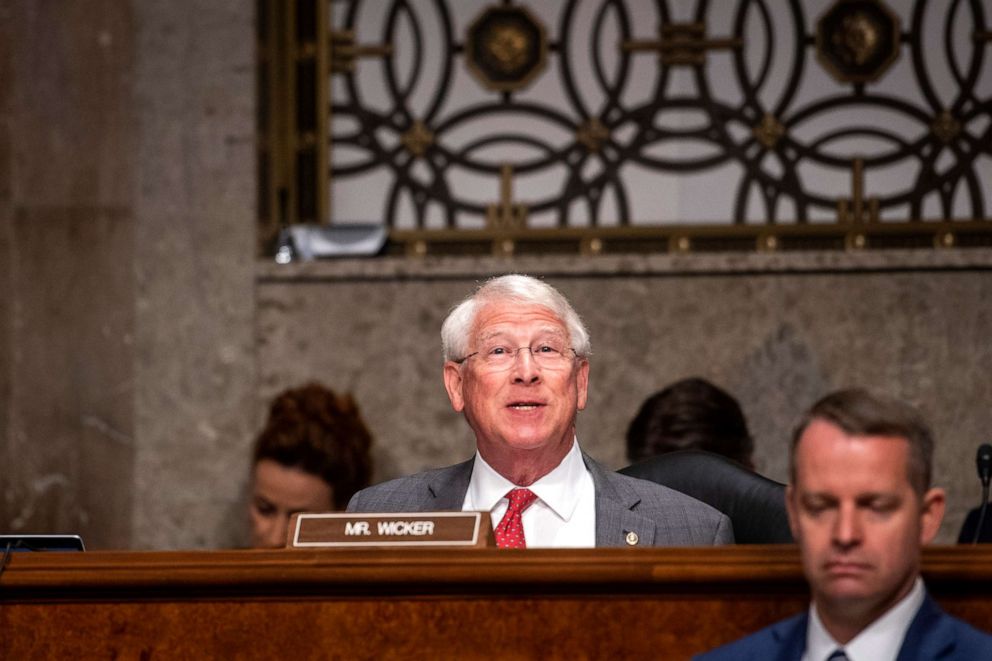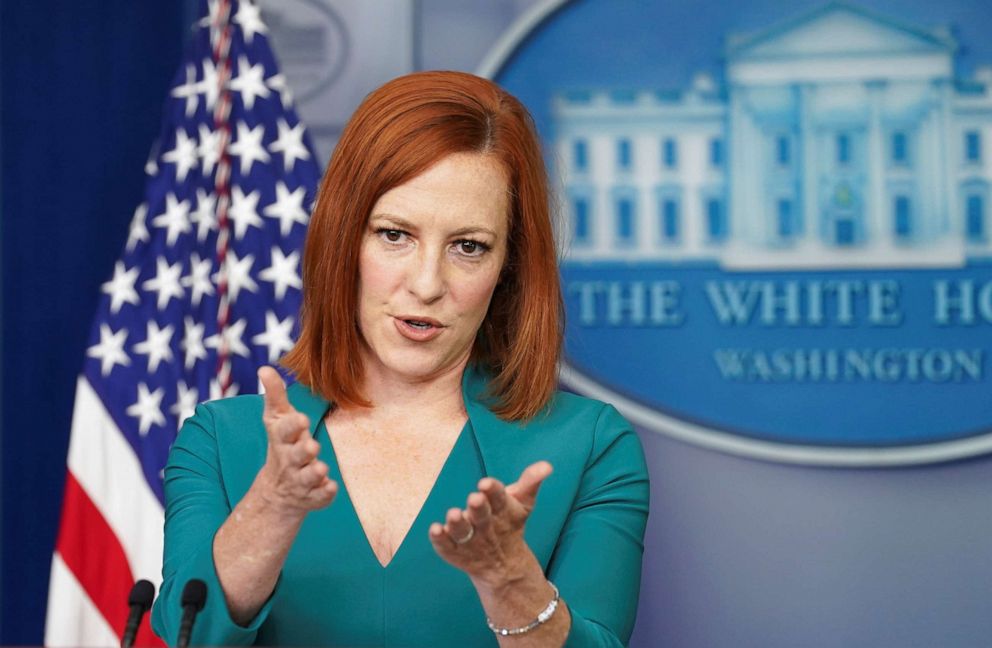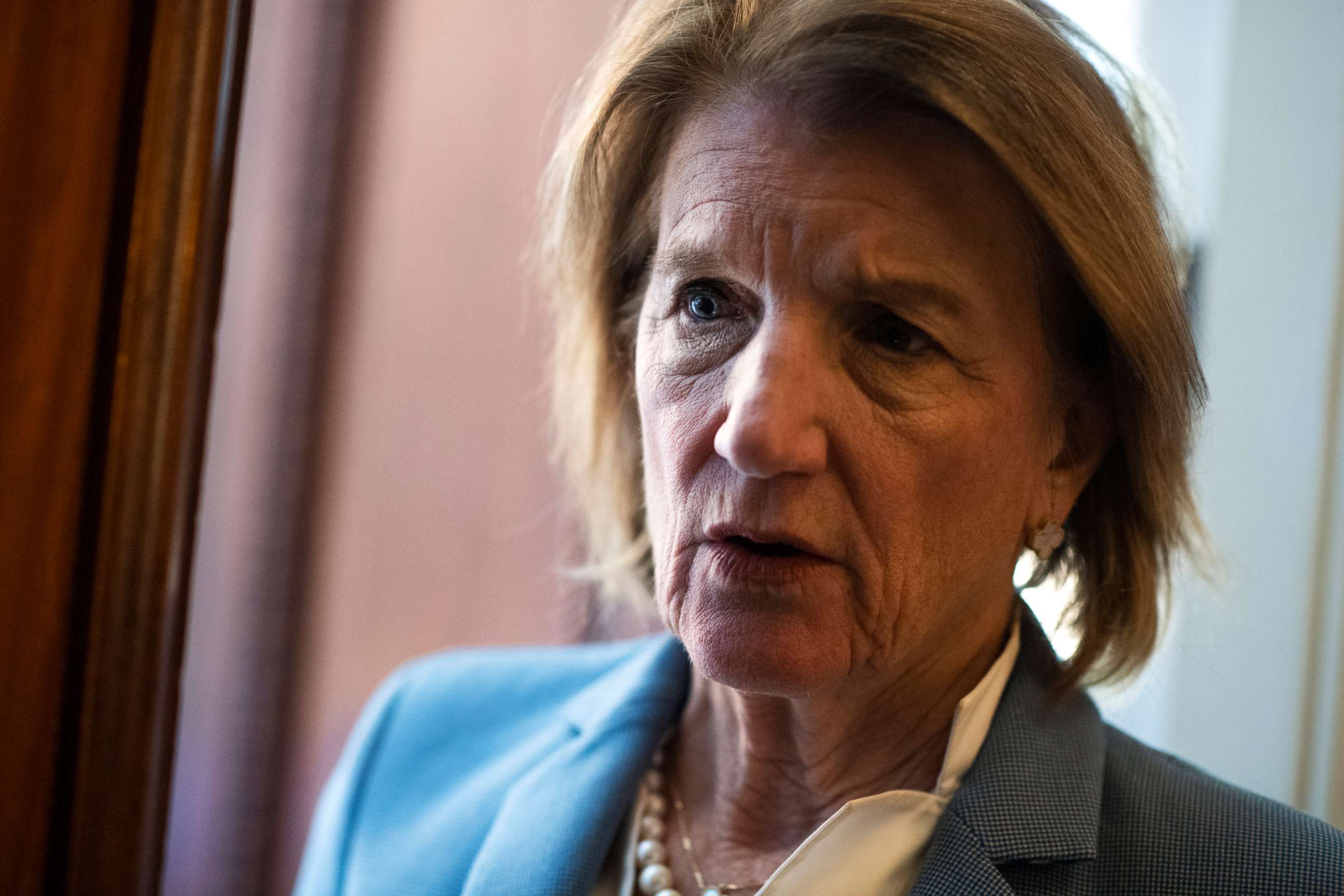Republicans plan to send Biden infrastructure counteroffer worth nearly $1 trillion
The White House wants "significant progress" on infrastructure by Memorial Day.
Senate Republicans intend to send President Joe Biden a nearly $1 trillion counterproposal on infrastructure spending Thursday, the latest attempt to make progress toward a bipartisan compromise just days before the president's deadline.
Biden has for weeks said that he needs to see "significant' progress on an infrastructure deal by Memorial Day. According to the group of Republican senators crafting the new offer, it will be the closest Republicans have yet come to Biden's initial proposal.
"It will end up being the most substantial infrastructure bill ever enacted by the federal government and if the president gets to make the decision he will accept it," Sen. Roger Wicker, R-Miss., said. "This is going to be a very good offer and it moves in his direction."

Sen. Shelley Moore Capito, R-W.Va., who is leading the Republican group of senators working on infrastructure, said Tuesday that she still thinks a deal could be struck, but the parties remain far apart.
There are still disagreements about how much the bill should cost, how it should be funded and what ought to be considered infrastructure.
Talks stalled Friday after Republicans flatly rejected a $1.7 trillion offer from the White House, a pared down version of Biden's American Jobs Plan, initially valued at $2.2 trillion. Republicans opposed the overall price of the White House package, but also rejected the proposed White House funding mechanism.
Negotiators have been locked in a stalemate for weeks over how to fund the massive package, with Republicans refusing tax hikes on corporations, which they say as a referendum on the 2017 tax bill, and Democrats refusing to consider using user fees, such as tolls or a gas tax, to pay for the package.
The new Republican offer relies on neither, Wicker said. Instead, it will propose that unused funds already approved by Congress -- for example, those allocated in the multiple COVID-19 relief packages -- be repurposed for infrastructure.
White House press secretary Jen Psaki threw cold water on Wicker's proposal at a briefing Tuesday, specifically his vow not to touch the 2017 Trump tax cuts.
"We're waiting to hear that -- hear back from Republicans on how they would propose to pay for it," Psaki said. "So if they don't want to touch the 2017 tax cuts, $2 trillion tax cuts that did not end up having a windfall back to the American public, I guess that's their choice what they put in their proposal, but they have to propose an alternative."

According to a copy of the White House proposal, obtained by ABC News Friday, the White House shaved $550 billion off its initial proposal by dropping funds for manufacturing, research and development, and also cutting spending for broadband expansion and roads, bridges and traditional infrastructure.
But it wasn't enough to meet the demands of Republicans, who have insisted for months that Biden drop "human infrastructure" elements -- including child care and home care -- from his package. They want a more focused bill targeting items traditionally considered infrastructure: roads, bridges and waterways.
Following a huddle with other Republican negotiators Tuesday, Capito said the group of lawmakers was "surprised" and "disappointed" by last week's White House offer.
Many Republicans have said that they feel as though Biden did not deliver on assurances he gave the group during a face-to-face meeting earlier this month. They blame Biden staffers who they said harried negotiations.
"We were closer after we met with Biden than we were after we met with the White House team twice," Sen. John Barrasso, R-Wyo., who has been part of the talks, said Monday.
But Psaki scoffed at claims that Biden was taking a back seat to his staff. She said the president signed off on the latest White House offer.
"Every single detail of that was directed by the president of the United States," Psaki said Tuesday.
Republicans' new offer to the administration will showcase areas where Republicans say Biden has failed to uphold commitments made in previous negotiations.
"The offer that you will receive Thursday morning will absolutely acknowledge statements made by the president of the United States in the Oval Office with our six-person group," Wicker said. "So the president will not be surprised at the more outlined and specific offer that he is going to receive. It will absolutely be in line with the parameters that he suggested in those meetings."

Psaki said the White House remains open to striking a deal. Capito conveyed the same.
But confidence is waning among lawmakers outside of the negotiations and Democrats are eager for movement.
"We're getting down to decision time," Democratic Whip Dick Durbin said Monday. "We can't put this over indefinitely."
Democrats could soon attempt to go it alone, using a procedural tool called reconciliation that would allow them to bypass the 60-vote threshold normally needed to pass legislation in the Senate.
But moving legislation this way would require unanimous support of all 50 Democratic senators in the evenly divided Senate. Right now, Sen. Joe Manchin, D-W.Va., is holding out hope that bipartisan talks will yield results and he won't sign off on reconciliation -- at least not yet.
"If the place works, let it work," Manchin told reporters, pointing to ongoing talks. "You all are upset because it's working."
Behind the scenes, Manchin, Sen. Rob Portman, R-Ohio, Sen. Mitt Romney, R-Utah, and other moderate members have started preliminary talks about a possible separate alternative proposal.
Romney said Tuesday that the group has been discussing possible funding models, but at the moment, is taking a back seat to the ongoing negotiations.
"I want to make sure that we don't interfere with the process going on between the White House and Shelley Moore Capito, so they're on the front burner we're kind of a back burner -- back up," Romney said.
ABC News' Trish Turner and Sarah Kolinovsky contributed to this report.